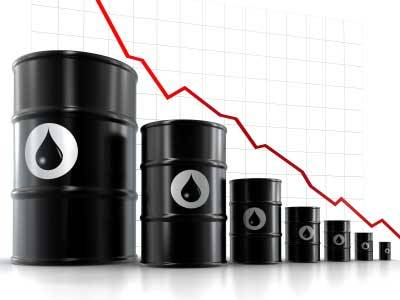The controversial billion-dollar Malabu oil deal is to be investigated by the European Union, Italy and the Netherlands after petitions by international extractive industry advocacy groups, Publish What You Pay (PYWP) and Zero Corruption Coalition (ZCC).
Copies of the letters dated July 5, 2013 were addressed to Italian Prime Minister, Mr. Enrico Letta, and copied the Minister of Foreign Affairs, Ms. Emma Bonino, Minister of Economy and Finance, Fabrizio Saccomanni, as well as the Minster of Justice, Annamaria Cancellieri, with the caption “Urgent Need for Italian Investigation and Diplomatic Engagement.”
A similar letter was also addressed to the Netherlands Prime Minister, Mark Rutte, and copied the Minister of Foreign Affairs, Frans Timmermans and the Minister of Security and Justice, Ivo Upstelten, with the title “Urgent Need for Investigation and Diplomatic Engagement.”
The letter to the Italian Prime Minister which acknowledged Italy’s championing of essential transparency initiatives, noted that companies involved in questionable and obscure deal-making are not being held to account for their role in the loss of hundreds of millions of pounds of revenue to Nigeria, money that should be used for development.
In particular, the advocacy groups informed the Prime Minister that Nigerians are highly concerned about the role of ENI, an Italian oil company, in the purchase in 2011 of the OPL-245 oil block in Nigeria.
“As a result of this deal made by ENI with Shell and the Nigerian government, US$800 million of ENI/Shell money has made its way through JP Morgan Chase to Malabu Oil and Gas, a company substantially owned and controlled by Chief Dan Etete, a convicted money-launderer and former Minister of Petroleum of Nigeria, Etete awarded this company the oil block in 1998 in opaque circumstances when he was in office,” the letter read in part.
The letter jointly signed by the National Coordinator, PWYP Nigeria, Faith Nwadishi, and the National Coordinator Zero-Corruption Coalition, Babatunde Oluajo, further reads: “We ask that the Italian government follows up on its worthy commitment to counter corruption by supporting a full and thorough Italian investigation of the OPL 245 case as it concerns an Italian company and one in which the Italian Government holds shares.
“We also ask that Italy supports, encourages and cooperates with Nigerian investigations into the case. In the course of an effective investigation in Nigeria, Italy or elsewhere in the world, a request for mutual legal assistance would be very likely. Italy should commit to providing that assistance if asked and seek an assurance from Nigeria that any request from Italy would be responded to promptly and that there would be no political interference from any Nigerian officials.”
In the letter to the Hague, the advocacy groups also raised concerned about the role of Shell, the Dutch oil company, in the purchase in 2011 of OPL-245 oil block in Nigeria.
Requesting the Dutch government to support a full and thorough Dutch investigation of the OPL-245 case as it concerns a Dutch company, the group also urged the Netherlands to support and cooperate with Nigerian investigations into the case in the course of an effective investigation.
“Your leadership on this issue is essential and would represent a strong and specific complement to Netherlands’s transparency agenda. We also believe that combating corruption is essential to efforts to undermine recruitment by terrorist groups, whose numbers are reportedly being swelled in countries such as Nigeria in a reaction to corruption,” the letter stated.
In a meeting with the EU delegation to Nigeria, in Abuja, Nwadishi pointed out that the new EU accounting directive, if complied with in Nigeria, will further improve transparency in the payments by oil companies and other multinationals to Nigerian government.
She told the Delegation of their determination to demand for the implementation of key outstanding remedial actions highlighted in the various oil and gas audit reports of the Nigeria Extractive Industries Transparency Initiative (NEITI) to enable Nigeria block gaps that currently allow theft and opacity in the oil industry.
In his response, First Secretary, Trade Counsellor, EU Delegation To Nigeria, Massimo De Luca, who promised to support investigation into the Malabu oil deal, said “investigations would be necessary to either establish the complexity on the part of ENI and Shell in the deal or exonerate them.
Luca said the EU will support the implementation of the Dodd Frank Law in Nigeria, a law mainly to support transparency in the extractive industry, with a view to boosting transparency in the countries oil sector.
While noting the need to pursue best practice across the oil and gas value chain, he said “an investigation will reveal whether or not ENI/Shell acted corruptibly or aided and abated corruption in the OPL 245 oil block deal.”

